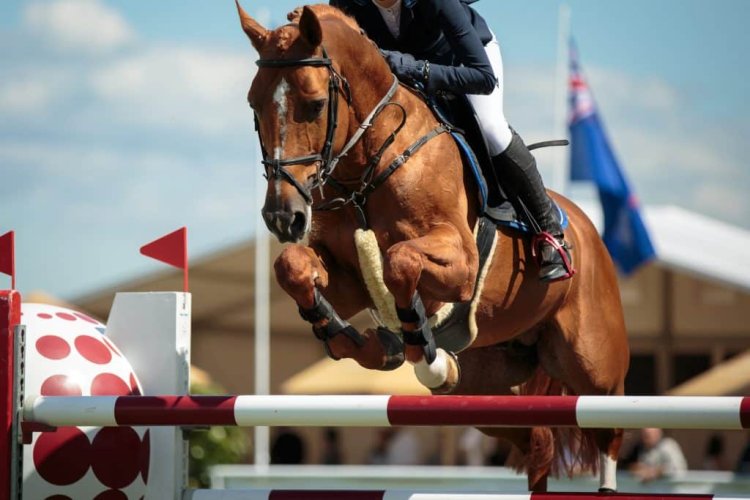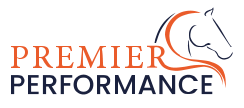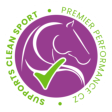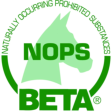in basket
Why are antioxidants beneficial to horses?

What are antioxidants?
Antioxidants are often talked about as being good for us and our horses, but what are they and why are they beneficial? Antioxidants are substances that can help protect the cells in the body from free radical damage.
Antioxidant substances include the vitamins E, C and A, which are effective free radical scavengers. The minerals selenium, copper, zinc and manganese produce antioxidant enzymes in the body. Other antioxidants include lipoic acid, coenzyme Q10, isoflavins and turmeric.
What are free radicals?
Free radicals are molecules that the body produces as a result of oxidation. Oxidation is a normal process that takes place in the body. When a substance in the body oxidises; for example, in the case of energy production where the body transforms nutrients such as carbohydrates, fats and protein into energy, then free electrons (also known as free radicals) are released. The production of these free radicals is an unavoidable consequence of oxidation.
Free radicals like to be in pairs so they scavenge the body to find other free radicals that they can pair with; hence, these free radicals (also known as unpaired electrons) search for electrons from other molecules in the body, which can then cause damage to the other molecule. The other molecule that has had its electron stolen then also becomes oxidised and the free radicals from this other molecule will then look to steal an electron from another molecule and so a vicious chain reaction of stealing electrons begins. When this cycle becomes more than the body can combat, this is referred to as oxidative stress, which may lead to cell damage (ageing and disease) or destruction.
How can antioxidants combat free radicals
Antioxidants act to stabilise free radicals and stop the destructive process that can lead to oxidative stress. These antioxidant substances scavenge free radicals, they do this by giving electrons to the free radicals and this neutralises them. Even in a healthy horse maintained at pasture, some free radical production will occur as part of normal body processes; however, antioxidants can easily combat these.
Vitamin E has been referred to as the ‘antioxidant hero’ as it makes a large contribution to the horse’s natural antioxidant defences. Vitamin E is a fat-soluble compound and it has been reported that if a horse receives adequate amounts of vitamin E in its diet, muscle membranes are more likely to remain intact during exercise, with less cell breakdown and less likelihood of muscle enzymes entering the bloodstream. Selenium works alongside vitamin E as part of the body’s antioxidant defence system. Selenium is an important part of an enzyme called glutathione peroxidase, which prevents the formation of free radicals. Moreover, selenium is also thought to help the absorption of vitamin E from the gut and its transport into tissues.
Vitamin C also plays an important role in neutralising free radicals. Although this vitamin is generally not required in horse diets as horses can synthesise their own vitamin C in the liver from glucose, during periods of stress vitamin C levels can drop below what is required for adequate antioxidant activity. Vitamin C is water soluble, which means it can work within and out with cells in the body to help combat free radical damage. Vitamin C works in combination with vitamin E to help protect cells since if one molecule of vitamin E has inactivated a free radical it then becomes unable to block others. However, vitamin C can regenerate this ‘used’ vitamin E to allow it to continue to combat further free radicals.
Antioxidants in feeds
If a healthy horse is maintained at pasture, then it is likely that the fresh grass will contain all the vitamins (and thus antioxidants) required. However, the domesticated horse, and especially many performance horses, may not have ample access to fresh pasture. Many horses are fed conserved forages, such as hay, and refined concentrate diets. Hay can lose as much as 80 percent of its vitamin E content during the drying process and storage. Vitamin E levels are also lower in more mature forages and are dependent on environmental conditions at harvest. Cereal grains and refined concentrate feeds generally contain lower levels of vitamin E than forages; however, cold pressed oils such as linseed oil and cod liver oil can be a good source of vitamin E.
How can antioxidants maintain health and performance?
In humans, it has been reported that levels of oxidative stress are higher in older people and may also be the case for horses as the ability to metabolise oxygen in the cells seems to be less efficient with age, which results in higher levels of free radical production. It is also thought that some older horses are unable to absorb vitamins and minerals as efficiently as younger horses, which is thought to be attributable to worm damage to the gut lining. However, with better de-worming regimes it seems that this gut damage is seen much less now than it was 50 years ago. Therefore, it may be beneficial to ensure adequate supplementation of antioxidants in the diets of older horses.
Free radical production is increased during exercise due to the increase in oxygen uptake. During exercise horses inhale more than usual in order to meet the oxygen requirements of their muscles. The oxidation that occurs at a cellular level in horses can cause muscle fatigue, which can compromise performance. When a horse is undertaking strenuous exercise the increase in free radicals generated from aerobic metabolism can overwhelm the natural stores of antioxidants that can help protect against oxidative stress. Vitamin E and selenium work together to help prevent nerve degeneration as a result of free radical damage, they also help prevent tying up and other muscle problems in horses exercising at high intensity (see previous article on tying up).
Stress and ill health can also increase free radicals. Thus, it can be important to ensure adequate vitamin C in your horse’s diet during times of stress or ill health since this can affect levels of vitamin C in blood. This may be due to a decrease in vitamin C production during periods of stress or ill health and/or due to this important antioxidant being used up to combat additional free radicals produced in times of stress or ill health. Studies have shown that 10 mg of vitamin C supplementation in the diet appears to be required as small intestinal absorption of vitamin C is low. At times of stress it is recommended that additional vitamin C supplementation is provided close to the stressful event or situation; for example, after a long period of travelling to a competition it may be beneficial to supplement your horse with vitamin C once s/he arrives at the destination, during the period of time spent at the competition and then after the journey home. It is also recommended not to feed additional vitamin C for prolonged periods of time when it is not considered to be required as this appears to affect the body’s ability to produce its own vitamin C.
Vitamin C supplementation has also been reported to reduce coughing and offset the signs of asthma in affected horses. Antioxidant supplementation can also help diminish, or even prevent allergic responses to allergens. As such, antioxidants may help alleviate seasonal allergies in horses and support the body’s immune system.
Article written for Premier Performance by Professor Jo-Anne Murray.






